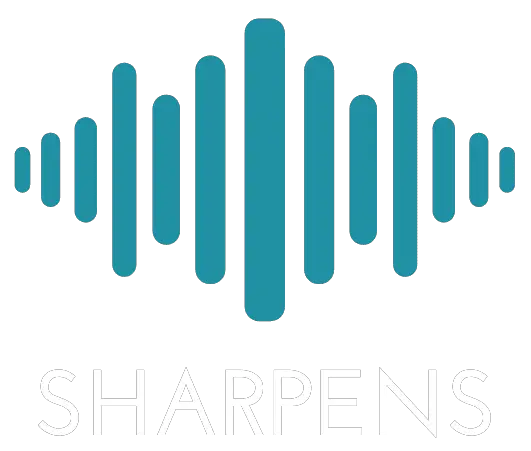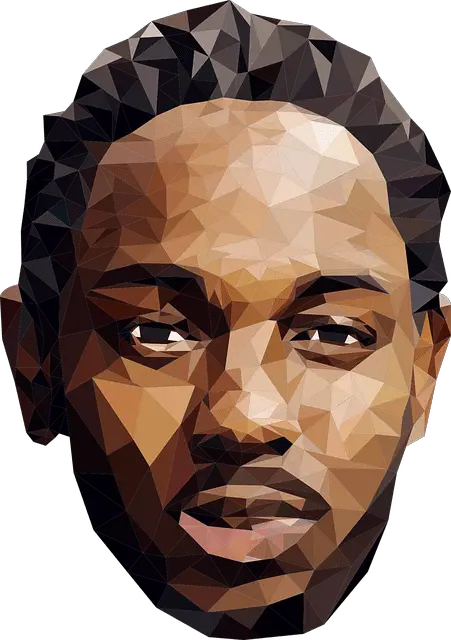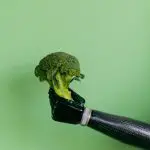Kendrick Lamar, also known by his stage name K.Dot, is an American Hip-Hop artist. In the industry, he is known for his lyricism and otherworldly creative ability. It’s no surprise that he’s been praised by many of the greats of the game such as Eminem and Ice Cube. Kendrick made his way into the mainstream with his second studio album “Good Kid, M.A.A.D City”. Ever since, he has been dominating the mainstream hip-hop scene along with the likes of J. Cole.
“To Pimp a Butterfly” was Lamar’s follow-up to “Good Kid, M.A.A.D City”. In it, he exceeded the expectations of most critics and fans. And he has the numbers along with critical acclaim/praises from the realest of Hip-Hop critics and Emcees to show for it. The album was first leaked accidentally by Interscope records. Yet, it was still certified platinum by the RIAA and topped the charts in U.K., U.S.A., and Australia. This genre-bending multi-layered album showcased the rapper’s lyrical genius as well as his boldness. There have been many instances of artists becoming formulaic in their approach to their craft once establishing themselves in the mainstream. But Kendrick took a leap of faith with his creativity and what resulted was nothing short of pure genius in the form of music.
Born in Compton, Kendrick grew up witnessing the grim realities of the hood. He was not affiliated to any gang but people close to him were. All in all, he had seen what was happening to the black community. And his love for Hip-Hop got him off the streets, yet he never forgot them. In a sense, the third track on the album, “King Kunta” is a wake-up call to all the rappers who have lost the connection to their roots. It’s Kendrick reclaiming his throne from those who claim to be the king of the rap game but forgot about the place of its evolution. Just like his idol, Tupac Shakur, Kendrick is interested in “keeping it real”.
What does the title mean?
There’s never one meaning to Kendrick’s songs. They are often multi-layered and laden with numerous-entendres. The title of the song, King Kunta, is a reference to Kunta Kinte from Alex Haley’s “Roots: The Saga of an American Family”. Kunta Kinte was a slave who tried to escape a plantation four times. He even refused to accept the new name that his master gave him and thus, reinforced his African identity in his face. For that, his master slave-owner retaliated by cutting off his foot. As hard as one might find it to believe, this is a true story that depicted the horrendous dehumanization that went along with the system of slavery.
In the track, Kendrick also mentions that everyone’s trying to cut off his feet. That might mean that everyone is waiting for him to fail. Apart from that, the title in itself is an oxymoron. He refers to himself as King Kunta. A king who’s also a slave. He’s the king of the rap game, but still a Black man in modern America, struggling to establish his identity. And perhaps, he just may end up establishing one in Hip-Hop and in contradictions.
What does the intro mean?
“I got a bone to pick
I don’t want you monkey-mouth motherfuckers
Sittin’ in my throne again
Ayy, ayy, nigga, what’s happenin’?
K-Dot back in the hood, nigga!
I’m mad (Hey mad!), but I ain’t stressin’
True friends, one question”
Kendrick Lamar has always had a great respect for the rap game. This is quite evident as he repeats that often. In the intro, Kendrick calls out all his competition and declares that he’s back in the rap game. Essentially, it’s a brag track. However, Kendrick is not trying to diss anyone in particular in these lines. In Big Sean’s “Control”, he explains that there is a fire in him to be the best. Yet, he still recognizes those that came before him and those who are still in the industry. He’s picking a bone with his homies and colleagues to raise the bar high in rap. That is another reason why Kendrick Lamar is also popular among old-school hip-hop heads as he keeps it real.
Chorus 1 – What does it mean?
“Bitch, where you when I was walkin’?
Now I run the game, got the whole world talkin’
King Kunta, everybody wanna cut the legs off him
Kunta, black man taking no losses, oh yeah
Bitch, where you when I was walkin’?
Now I run the game, got the whole world talkin’
King Kunta, everybody wanna cut the legs off him
When you got the yams—(What’s the yams?)”
As documented by many artists who’ve lived in poverty but got sudden fame and wealth due to their success, Kendrick notes the sudden interest people have been taking in him even though they did not believe in him when he was still struggling. He also calls himself King Kunta and claims that everyone is waiting to cut off his legs. “Yams” is perhaps one of the most important in the whole song, and Kendrick elaborates on it in his first as well as second verse.
Verse 1 – What does it mean?
“The yam is the power that be
You can smell it when I’m walkin’ down the street
(Oh yes, we can, oh yes, we can)
I can dig rappin’, but a rapper with a ghostwriter?
What the fuck happened? (Oh no!)
I swore I wouldn’t tell, but most of y’all sharing bars
Like you got the bottom bunk in a two-man cell (A two-man cell)
Something’s in the water (Something’s in the water)
And if I gotta brown-nose for some gold
Then I’d rather be a bum than a motherfuckin’ baller (Oh yeah!)”
Kendrick explains that the yam is the power of the streets. It’s the power that the people have. He can obviously smell it because he enjoys a certain status due to his fame and wealth. However, the nature of this power differs from the perspective one takes. In Ralph Ellison’s book “Invisible Man”, yams symbolize the identity of a black man. On the other hand, in Chinua Achebe’s book “Things Fall Apart”, Yams symbolize abstract power. Achebe’s book is an exploration of the pre- and post-colonial lives of Nigeria’s Igbo people. There, yams were the most important crops. Those who had control over the yams enjoyed a certain power over others. As a slang, yam can also mean vagina. Thus, it also stands for lust. Kendrick further elaborates this very word and its probable meanings in the next verse.
Kendrick also takes a jab at rappers who use ghostwriters. Back in the early days of Hip-Hop, authenticity was something that you could make or break one’s career. Therefore, using a ghostwriter was almost taboo. However, as he pointed out in an interview after the release of this album, Kendrick is not actually dissing rappers who use ghostwriters. He’s just wondering why not more rappers are exercising their creativity and “standing by their lyrics”. He also revealed in the interview that he himself made his way into the industry as a ghostwriter. Thus, he is definitely not taking a jab at ghostwriters, but only hip-hop artists who don’t care about what the lyrics of their songs are. “Sharing bars” is a double-entendre. It means that rappers are happily ‘biting’ or copying each other’s flow and lyrics as if they’re sharing a cell in a prison.
In the last lines of his verse, he declares that he’d rather be poor than compromise on his principles to get rich.
Verse 2 – What does it mean?
“The yam brought it out of Richard Pryor
Manipulated Bill Clinton with desires
Twenty-four-seven, three-sixty-five days times two
I was contemplatin’ gettin’ off stage
Just to go back to the hood, see my enemy, and say… (Oh yeah)”
The second verse begins after the chorus, and Kendrick elaborates on the word “yams”. As mentioned previously, “yams” becomes a complex word in this whole song as it represents authenticity, lust, power, drugs and other temptations. Richard Pryor, the famous comedian, had drug issues and could not handle his fame. On the other hand, the whole Monica Lewinsky scandal was caused due to Clinton’s lust. As it’s a part-brag track, Kendrick finishes the verse indicating his desire or lust to flex.
Verse 3 – What does it mean?
“You goat-mouth mammyfucker
I was gonna kill a couple rappers, but they did it to themselves
Everybody’s suicidal, they ain’t even need my help
This shit is elementary, I’ll probably go to jail
If I shoot at your identity and bounce to the left
Stuck a flag in my city, everybody’s screamin’, “Compton!”
I should probably run for mayor when I’m done, to be honest
And I put that on my momma and my baby boo too
Twenty million walkin’ out the court buildin’, woo-woo!
Aw, yeah, fuck the judge
I made it past twenty-five, and there I was
A little nappy-headed nigga with the world behind him
Life ain’t shit but a fat vagina
Screamin’, “Annie, are you okay? Annie, are you okay?”
Limo tinted with the gold plates
Straight from the bottom, this the belly of the beast
From a peasant to a prince to a motherfuckin’ king (Oh yeah)”
In American culture, “mammies” were Black women who took care of white children. “Goat-mouthed” in Jamaican lingo means God-damned. Lamar is specifically provoking other Black artists in the rap game to raise the bar high. He even alludes to Jay-Z to get his point across. Jay-Z in his track “Thank You” says that most rappers kill their careers by not improving upon their skills. Kendrick uses Jay-Z’s lines to get two points across – he is not afraid of beefing and he wants rappers to step up their game for the sake of Hip-Hop.
Apart from that, the whole verse is loaded with references to other legends such as Snoop Dogg, Dr. Dre, and Michael Jackson. By doing so, Kendrick depicts the difference between plagiarism and interpolation in practice. He also reiterates that he has now made it big, defying the stereotypical perception of young black men – that by the age of 25, black men in the ghettos either end up dead or in jail.
He keeps the funk alive by using lines from Michael Jackson’s one of the funkiest songs “Smooth Criminal”. At the end of the verse, he proclaims himself the king – King Kunta. A king who started from the bottom and ended up on the throne.
Chorus 2 – What does it mean?
“Bitch, where you when I was walkin’—*Gunshot*
By the time you hear the next pop
The funk shall be within you—*Gunshot*
Now I run the game, got the whole world talkin’
King Kunta, everybody wanna cut the legs off him
King Kunta, black man taking no losses, oh yeah
Bitch, where you when I was walkin’?
Now I run the game, got the whole world talkin’
King Kunta, everybody wanna cut the legs off him”
The second chorus is almost identical to the first one except for the addition of two sound-effects and a couple of extra lines. This way, Kendrick emphasizes upon the fact that he is a King who cannot be taken down by guns (violence). Just like cutting off the legs of Kunta Kinte did not break his spirit.
What does the Outro mean?
“Funk, funk, funk, funk, funk, funk, funk, funk, funk, funk, funk
We want the funk
We want the funk
Now if I give you the funk, you gon’ take it?
We want the funk
Now if I give you the funk, you gon’ take it?
We want the funk
Now if I give you the funk, you gon’ take it?
We want the funk
Do you want the funk?
We want the funk
Do you want the funk?
We want the funk
Now if I give you the funk, you gon’ take it?
We want the funk”
The outro of the track is all about ending the song on a funky note.
What does the Poem at the end mean?
“I remember you was conflicted, misusing your influence”
There’s a spoken line at the end of some versions of the song. On the song uploaded on YouTube, this line is excluded. In the album available on iTunes and Spotify, there are various lines scattered all over the tracks that finally culminate into the final song, “Mortal Man”.

Conclusion
Originally, Kendrick wanted the album to be named To Pimp a Caterpillar, but Top Dawg pointed out that it would be perceived as Tupac (ToPAC). To keep the message bright as a butterfly and inspire hope, Kendrick changed the name of the album. Yet, the final track still remains a homage to his icon, Tupac Amaru Shakur.



